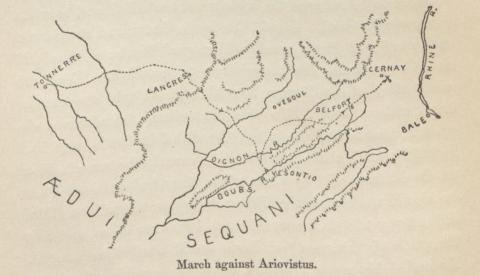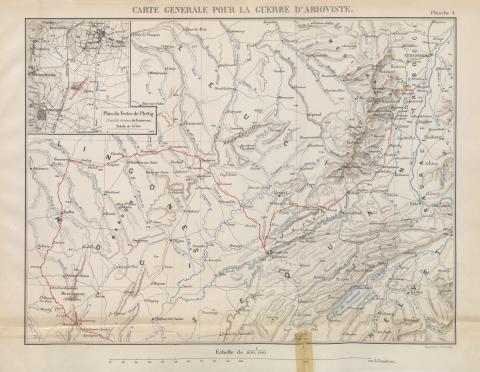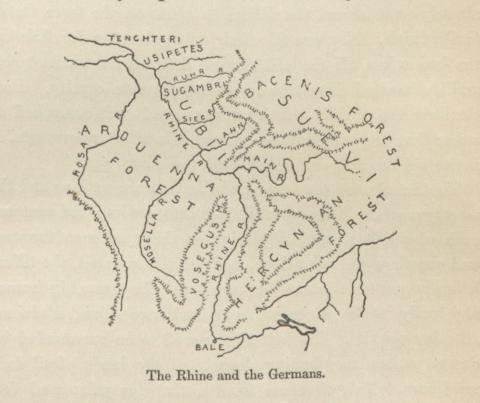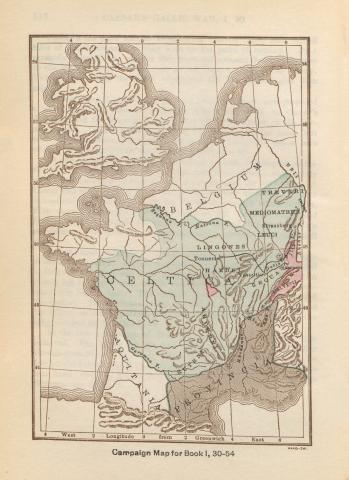mandātum, -ī n.: charge, injunction, order, commission.
Trēver, -erī m.: a Treveran; pl., the Treveri, a Gallic tribe living near the Rhine. The name survives in the modern Trèves
Harūdēs, -um, m.: pl., the Harudes, a German tribe, originally perhaps living in Jutland.
nūper: adv., lately, recently.
trānsportō, -āre, -āvī, -ātus: carry over, take across, transport.
populor, -ārī, -ātus: lay waste, pillage.
obses, -sidis m. and f.: hostage.
redimō, -imere, -ēmī, -ēmptus: buy back, buy up, purchase.
pāgus, -ī, m.: district, canton; people of a canton.
Suēbī -ōrum m.: the Suebi. The Suebi lived in Germany, but the exact locality is uncertain. Some think that several different German tribes were included under the name
Rhēnus, -ī, m.: the Rhine, a large river forming the boundary between Gaul and Germany.
cōnsīdō, -sīdere, -sēdī, -sessus: take a seat; settle, make a home; pitch camp; take a position, station oneself; hold a meeting.
praesum, -esse, -fuī: be before, be set over, be in command of.
Nasua, -ae, m.: Nasua, a leader of the Suebi.
Cimberius, -ī, m.: Cimberius, a leader of the Suebi.
vehementer: adv., furiously, eagerly, vigorously; greatly, extremely, exceedingly.
commoveō, -movēre, -mōvī, -mōtus: disturb, excite, agitate, impel.
mātūrō, -āre, -āvī, -ātus: hurry, make haste.
coniungō, -iungere, -iūnxī, -iūnctus: join together, unite; connect, fasten together; sē coniungere, unite; part., closely joined, allied, associated, connected, having relationship.
facile: adv., easily, without difficulty; safely; unquestionably.
resistō, -sistere, -stitī: stay behind; halt, stop; make a stand, withstand, resist, oppose; resistitur, resistance is offered; resistēns, -entis, (adj.) enduring, firm, resolute.
frūmentārius, -a, -um: of grain; abounding in grain, fertile; rēs frūmentāria, grain-supply, provisions.
contendō, -tendere, -tendī, -tentus: strain, exert oneself; strive for, attempt, try; hasten, press forward; contend, vie; join battle, fight, quarrel; insist; demand.




